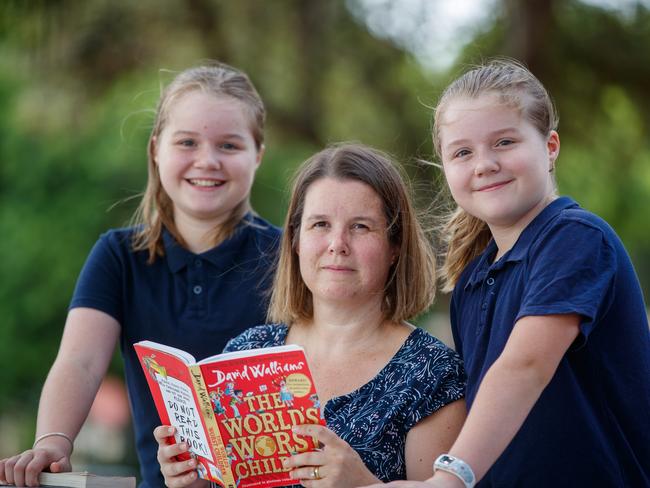World Vision weighs in: open up schools to save our children
World Vision has taken the dramatic step of weighing into the political debate about school shutdowns, amid fears 1.2 million children may be lost to our education system permanently.
Coronavirus
Don't miss out on the headlines from Coronavirus. Followed categories will be added to My News.
World Vision Australia has weighed into the school shutdown political debate by calling on the national cabinet to reopen schools, to save the 1.2 million children who will be further entrenched in poverty and may be lost to the education system permanently.
In a move some in federal politics are hoping will be the lightning rod to push states to open schools more widely, World Vision acting CEO Graham Strong has come out strongly urging governments to consider that the longer the shutdown continues – the further the gap extends between disadvantaged children and their peers.
All schools across the country will have resumed Term 2 by the end of next week but most state departments are encouraging families to keep their children home where they can.

For many students, home learning is a break from the school routine they will be able to catch up on but for others it means a lifetime of further disadvantage.
Most schools remain open for children of key workers and vulnerable children but this relies on students self-identifying as ‘vulnerable’ as well as banking on them or their parents pushing for them to go to school.
“Some disadvantaged children will be lost to the education system completely,” Mr Strong warned.
It is the first time one of the big international NGOs has waded into the political debate and it is seen as an unusually strong move by the charity.

“We are particularly concerned about the impact on First Nations children and are encouraged by and support the work being conducted by state-based Aboriginal education advisory groups,” Mr Strong said.
“The National Cabinet must prioritise and resource the soonest return to normal school delivery as soon as practicable.
“World Vision Australia stands ready to support the continuity of education to the best of our ability.”
It comes as the latest analysis of IEA data from the Progress in International Reading and Literacy Study (PIRLS) has shed new light on the link between children reporting feeling hungry and their school performance.
Nearly 50 education systems around the world took part and the report found that in Australia 13 per cent felt hungry every day and more than 25 per cent of schools provided free lunches for students and more than 10 per cent provided free breakfasts.
Dr Sue Thomson, the General Assembly representative for Australia and Deputy CEO (Research) ACER said the data indicated how many children may be going hungry with schools shut.

She said that while Australia doesn’t have a ‘school lunch’ culture the rising number of schools providing food for hungry students indicates there is a need.
“Obviously it is a necessity and schools recognise it as a necessity. And therefore what else are they missing,” she said.
“Certainly if they are not getting that food they are not getting any home schooling in any decent way and possibly not learning very well either.
“The more kids drift away from school the less likely we are to get them back.”
Renee Hancock, CEO of the Les Twentyman Foundation, who deals with vulnerable families said isolation had a big impact on disadvantaged families and that school was often a welfare check.
She said many children had no secure place to do their work and that the charity used to run homework clubs for students who need support and a safe space but the libraries they used to run them from were now closed.
“No schedule is going to work in a household when you have eight to 10 kids in a three-bedroom house. We are really worried there are young people who will be left behind.”

WORLD VISION KEY FIGURES
• Almost 2.6 million Australians are not online
• Nearly 1.3 million households are not connected to the internet
• 774,000 Australian children under the age of 15 (17.7 per cent of all children, or more than one in six) are living below the poverty line. A further 424,800 young Australians live in poverty
• indigenous Australians in urban and regional areas have low digital inclusion (55.1, or 6.8 points below the national average), according to the 2019 Australian Digital Inclusion Index
In 2017, the overall attendance rate for indigenous students nationally was 83.2 per cent, compared with 93.0 per cent for non-Indigenous students. The educational outcomes for First Nations children compared to the broader Australian population is well behind and is not narrowing at any significant rate
• Migrants from non-English speaking countries are less connected (81.6 per cent) than those born in Australia (87.6 per cent)
• Wealthier Australians are more likely to have internet access at home than those with lower incomes – 96.9 per cent of the highest quintile income households have access, whereas only 67.4 per cent of the lowest quintile have access.
